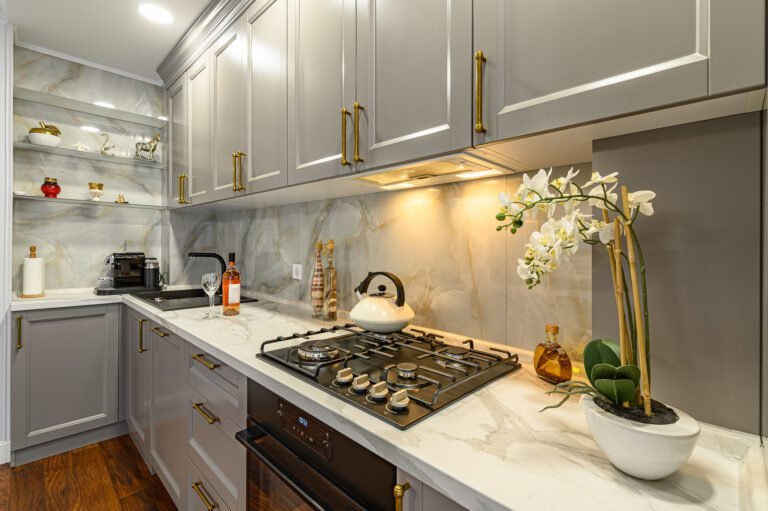Introduction
A well-planned kitchen remodel transforms the heart of your home into a functional, modern, and efficient workspace. Remodeling your kitchen is not merely a cosmetic update; it is a strategic investment that enhances workflow, energy efficiency, and property value. A professional approach requires coordination of design, budgeting, materials, and project management into one cohesive process. This article outlines each essential stage, from initial planning to final inspection, to help you achieve a remodel that balances beauty with precision.
Establish a Clear Remodeling Plan
A detailed remodeling plan forms the foundation of a successful project. Start by evaluating your current kitchen layout and identifying existing limitations such as poor lighting, insufficient storage, or outdated fixtures. Determining whether you need a simple refresh or a full renovation involving plumbing and electrical work defines the project scope early on.
Once your goals are defined, document them thoroughly. Professional designers or architects can create accurate digital renderings that help you visualize the final outcome and identify potential adjustments before construction begins. A solid plan ensures proper coordination, accurate estimates, and efficient scheduling. It also provides a reference for contractor bids, allowing you to compare pricing and services on equal terms.
Set a Realistic Budget Framework
Budgeting establishes the limits within which your remodel can succeed. Begin by determining how much you can responsibly invest based on your home’s value and long-term financial goals. Establishing a clear house remodelling budget helps guide decisions and ensures priorities are met. Many experts recommend allocating between ten and twenty percent of your property’s total worth for a mid-range or high-end remodel. Within that figure, divide costs among major categories such as cabinetry, appliances, flooring, lighting, and labor.
Labor usually accounts for about one-third of total expenses, while cabinetry often consumes another quarter. Appliances, finishes, and fixtures typically require the remainder. Always reserve at least ten percent of your total budget as a contingency fund to cover unexpected issues like hidden water damage or code-required upgrades. Transparent financial planning minimizes stress and provides flexibility if pricing changes occur during construction.
Secure Required Permits and Inspections
Permits and inspections protect your investment by ensuring that all work meets safety and quality standards. Kitchen remodels involving plumbing, structural modifications, or electrical rewiring generally require official approval. Contact your local building department early to determine which permits you will need and what fees apply.
Working with a licensed contractor helps streamline the process since experienced professionals understand local regulations and can handle documentation efficiently. Scheduling inspections at appropriate project stages, such as after rough-in electrical and plumbing work, guarantees compliance with building codes. Keeping copies of permits and inspection reports also supports future resale value and insurance coverage.
Select a Qualified Contractor and Design Team
Choosing reliable professionals is one of the most important decisions in a remodel. Verify contractor credentials, insurance, and references to confirm credibility. Request detailed written estimates that clearly outline material costs, labor charges, and project timelines. Comparing several bids based on identical specifications allows you to evaluate value rather than just price.
Equally vital is hiring a designer who understands both aesthetics and functionality. A skilled designer can balance space efficiency with style, ensuring that the layout supports how you cook, clean, and entertain. Insist on contracts that specify scope, payment milestones, and warranty details. Clear agreements minimize misunderstandings and keep everyone accountable throughout the project.
Choose High-Performance Materials
Material selection directly influences durability and maintenance. For cabinetry, consider hardwoods such as maple or cherry, or choose high-quality engineered wood for cost-effective strength. Quartz and granite countertops provide superior resistance to stains and heat, while laminate or recycled composites offer budget-friendly alternatives. When selecting flooring, engineered hardwood, porcelain tile, or luxury vinyl planks combine visual appeal with moisture protection.
Lighting should include a combination of general, task, and decorative fixtures. Layered illumination enhances usability and contributes to the room’s overall ambiance. Prioritize energy-efficient options that lower utility costs and reduce environmental impact. Each material decision should align with your lifestyle, ensuring the remodel remains functional and attractive for years.
Coordinate Plumbing, Electrical, and Ventilation Work
Behind every beautiful kitchen is a well-coordinated system of utilities. Moving sinks or major appliances may require rerouting plumbing or gas lines. Electrical upgrades often involve new circuits to handle the power demands of modern appliances. Hiring certified tradespeople ensures compliance with codes and reduces safety risks.
Proper ventilation is equally essential. A high-quality range hood prevents odors, heat, and moisture from accumulating. Select models with sufficient airflow based on your cooktop size, and ensure vents direct air outside rather than recirculating it indoors. Planning these systems early in the design phase helps avoid costly modifications once construction begins.
Oversee Construction and Maintain Quality Control
Once construction starts, consistent oversight ensures that every step aligns with your expectations. Regular site visits allow you to identify and resolve issues such as misaligned cabinetry or uneven flooring before they become serious. Communicate frequently with your contractor to stay updated on progress and timelines.
Maintain a written record of decisions, change orders, and completed milestones. This documentation protects you in case of disputes and helps you monitor expenses. Conduct a pre-final walkthrough to identify any remaining adjustments or touch-ups. Paying attention to detail during this phase guarantees that the completed kitchen reflects your original vision and meets professional standards.
Add Finishing Touches and Conduct Final Inspection
The finishing stage brings your remodel to life. Painting, sealing, and hardware installation require precision to ensure a polished result. Verify that all appliances function properly and that plumbing fixtures operate without leaks. Confirm that electrical systems, lighting, and ventilation work as intended.
During the final inspection, review warranties and maintenance guidelines for every installed product. Keeping these documents organized will simplify future repairs and maintenance. Once all elements have been reviewed and approved, your remodeled kitchen stands ready to serve as a modern, efficient, and elegant centerpiece for your home
Conclusion
Remodeling your kitchen is a significant endeavor that combines creativity, planning, and technical expertise. Every decision, from budgeting to finishing details, contributes to the project’s overall success. By approaching each phase with professionalism and patience, you ensure that your kitchen is not only functional and beautiful but also a lasting investment that enhances your home’s value and your daily life.


































